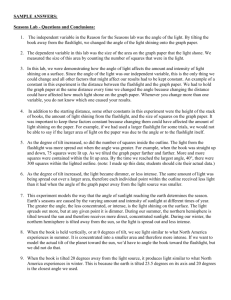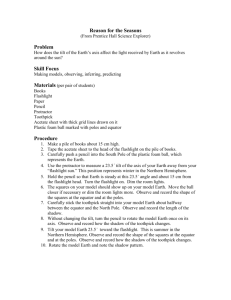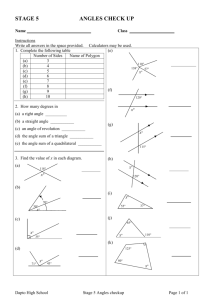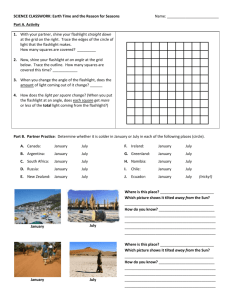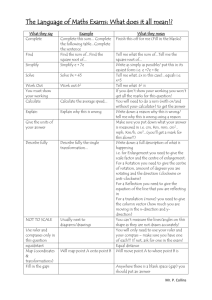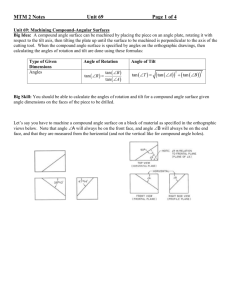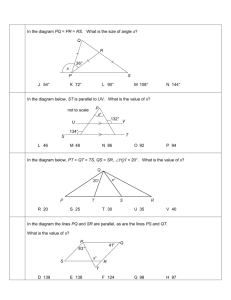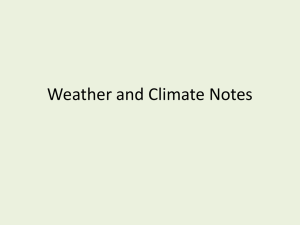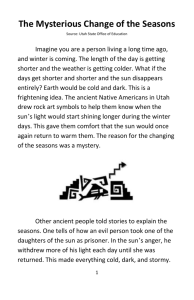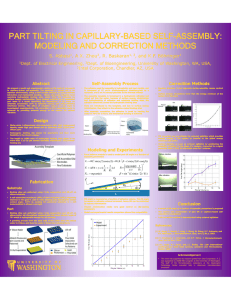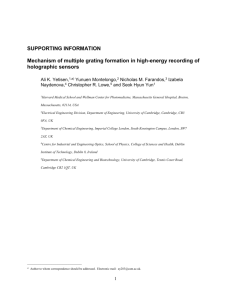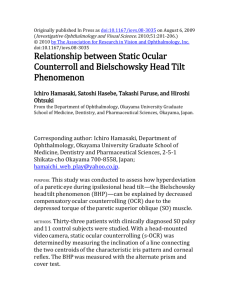NAME 10/23/12 Science Period 4 Purpose: To demonstrate how the
advertisement
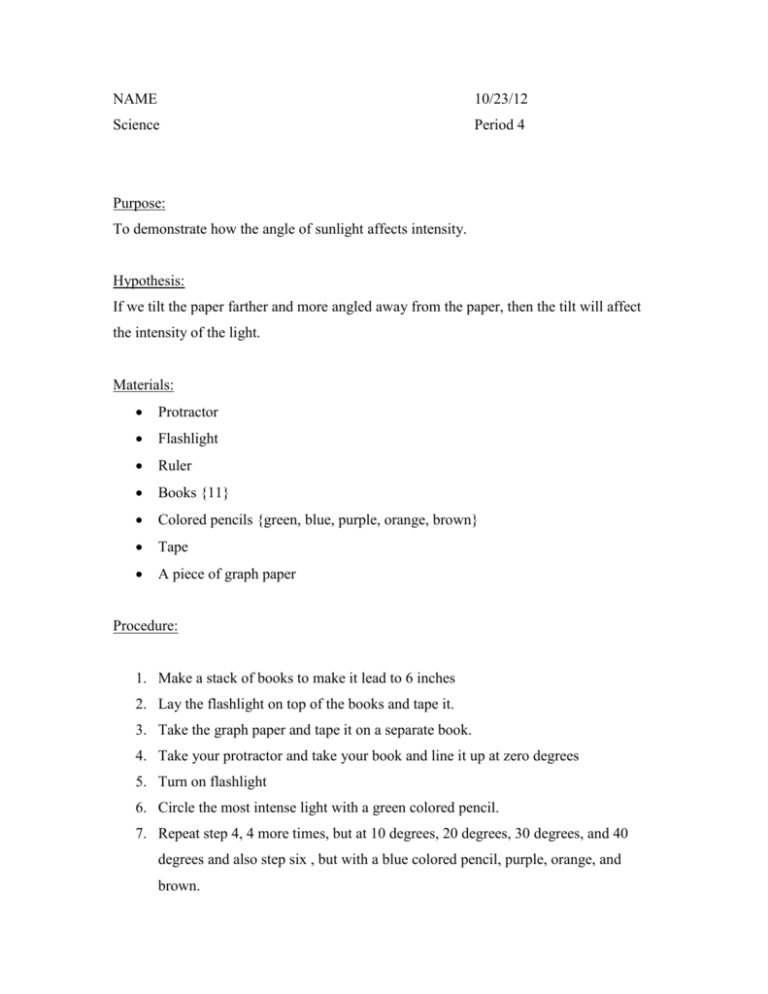
NAME
10/23/12
Science
Period 4
Purpose:
To demonstrate how the angle of sunlight affects intensity.
Hypothesis:
If we tilt the paper farther and more angled away from the paper, then the tilt will affect
the intensity of the light.
Materials:
Protractor
Flashlight
Ruler
Books {11}
Colored pencils {green, blue, purple, orange, brown}
Tape
A piece of graph paper
Procedure:
1. Make a stack of books to make it lead to 6 inches
2. Lay the flashlight on top of the books and tape it.
3. Take the graph paper and tape it on a separate book.
4. Take your protractor and take your book and line it up at zero degrees
5. Turn on flashlight
6. Circle the most intense light with a green colored pencil.
7. Repeat step 4, 4 more times, but at 10 degrees, 20 degrees, 30 degrees, and 40
degrees and also step six , but with a blue colored pencil, purple, orange, and
brown.
Data Table:
Degree of
Green
Blue
Purple
Orange
Brown
Tilt
0 Degrees
10 degrees
20 degrees
30 degrees
40 degrees
Number of
97
129
153
180
201
54
79
105
143
337
Squares lit
up
Class
Average
Question/ Analysis
1. The independent variable is the angle of the light shining onto the paper.
2. The dependent variable is the size of the area on the graph paper that light was
shown.
3. We had to keep the book the same because since the angle of the light is our
independent variable, this is one of the things we can keep constant.
4. Some constant were the same flashlight, and keep the flashlight in the same place.
5. The outline changed because the more moved back, the more light expands into
more boxes.
6. The light expanded more because when the book moves back, the more light
expands more, but it has dimmer light.
7. This experiment models the way that the angle of sunlight reaching the earth
determines the seasons because we tilted the book back like the tilt of the earth.
8. The fist angle at zero degrees had the most intense light because it was closest to
the flashlight.
9. The last tilt at 40 degrees had the least amount of direct light because it had a lot
of light but it was very dim.
10. The cause for the seasons is the tilt of the earth on its axis.
Conclusion:
In this experiment, we demonstrated how the angle of sunlight affects intensity.
My hypothesis, “If we tilt the paper farther and more angled away from the paper, then
the tilt will affect the intensity of the light,” was proven. The more we tilted the paper
back the intense light had faded away. When it was closer to the light the more intense
light was there. For Example, when it was at 0 degrees, on the graph paper there was 97
squares covered with light. At the end at 40 degrees the light filled up to 201 squares!
Now you see that the last angle was much greater then the first angle. During the
experiment, we could of turned off the light to make it more like it was in outer space and
to get more lively results. This experiment proves that the tilt of the earth does affect light
intensity.
